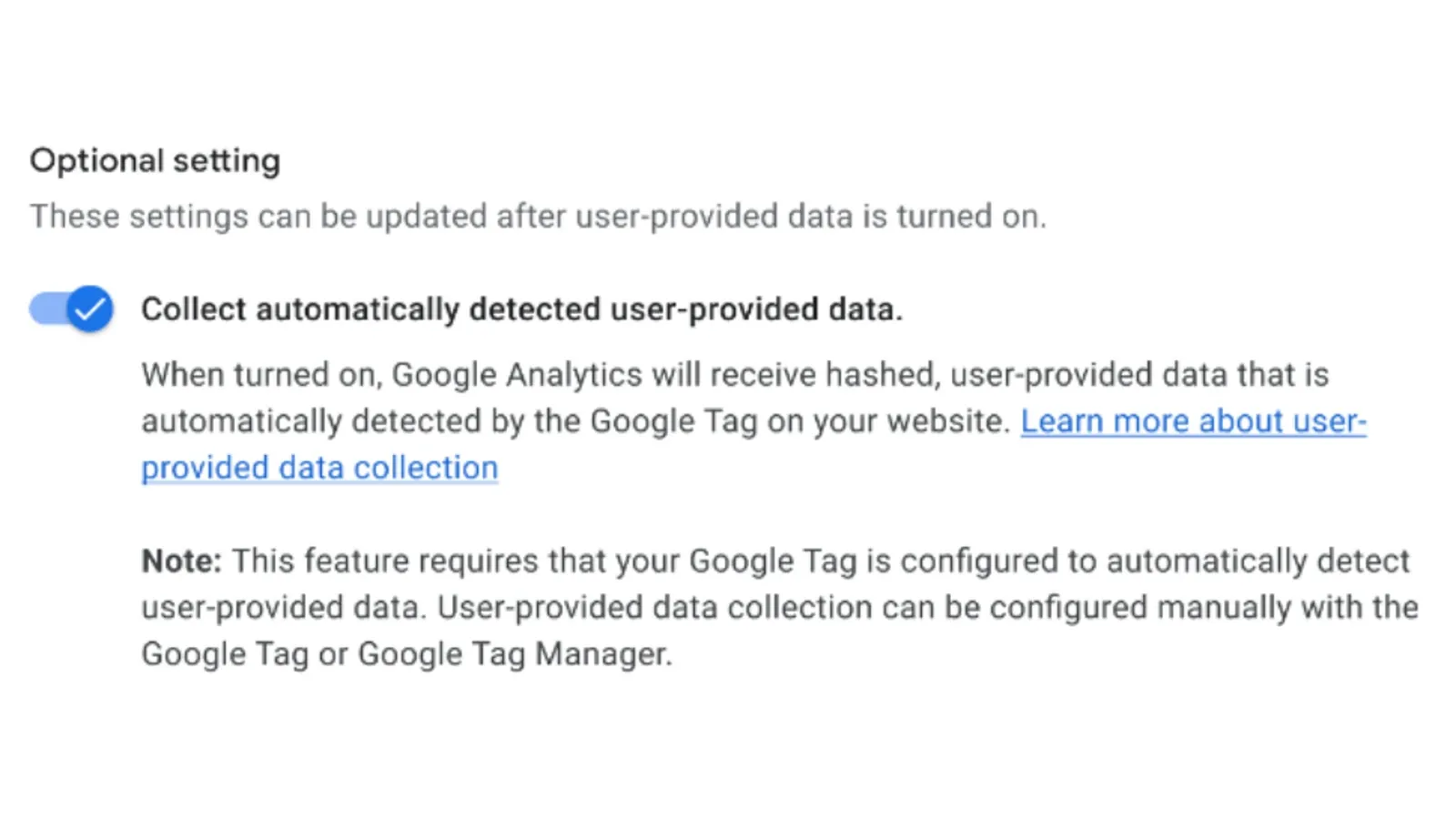GA4 now collects user-provided data without a user ID
Google Analytics today released an update enabling businesses to collect user-provided data without the need for a user ID.

Google Analytics today released an update enabling businesses to collect user-provided data without the need for a user ID. This change reflects the evolving landscape of web analytics and a growing emphasis on user privacy within the industry.
The feature is currently in open beta and might be subject to further modifications. Ensure adherence to applicable privacy regulations such as the GDPR and ePrivacy Directive when collecting and processing user data.
Key Changes
- Simplified User Data Collection: Companies can now directly collect user-provided data, such as email addresses or phone numbers, without the need to first generate a user ID.
- Enhanced Privacy: Google Analytics will use this data to construct hashed, pseudonymized user IDs for improved cross-platform reporting, conversion measurement, and audience sharing, while protecting user privacy.
- Expanded Deletion Control: Users now have greater control over their data with the ability to request the deletion of user-provided data, in addition to standard identifiers like user IDs.
Why This Matters
These updates make it easier for businesses to collect valuable customer data in a privacy-conscious way. The changes provide the following advantages:
- Future-Proofed Analytics: Organizations can mitigate the impact of third-party cookie deprecation and ensure a smooth analytics experience.
- Improved Reporting and Insights: Google Analytics will leverage the user-provided data for more accurate audience analysis, demographics reporting, and insights into conversion paths.
- Better Ad Targeting: The integration with Google Ads will facilitate enhanced marketing campaigns with improved targeting and bidding, driven by first-party data.
Who Should Implement These Changes
The update is beneficial for most businesses, particularly those collecting user information through forms, account creations, or transactions.
The Future of Analytics
This update aligns with the greater industry shift towards privacy-centric data collection practices. It emphasizes the importance of obtaining user consent and providing greater transparency in how data is used.

